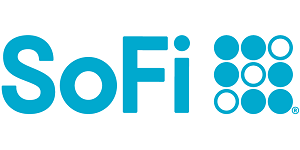With the average cost of college currently at $36,436 per year, most students have no choice but to take out student loans. Whether you go to a public or private university in or out of state, you’ll probably need at least a little help. And we’re here to help you get it.
Students might turn to private student loans instead of or in addition to federal student loans to help cover the cost of tuition and boarding. So how do you choose between the many private lenders — including banks, credit unions, and online marketplaces — out there? We’ve compared many of the top lenders to find those with the best rates, repayment terms, range of options, and more.
But enough suspense. Let’s dive into the best private student loans for you.
Best private student loans
- Our Pick: Ascent Loans
- Best for flexible repayment terms: SoFi
- Best for cosigner: Earnest
- Best for graduate students: Sallie Mae
- Best for student loan refinancing: Splash Financial
- Best for multi-year approval: Citizens Bank
Ascent Loans

- Fees – None
- Prepayment penalty – None
- Minimum – $2,001
- Maximum – $200,000 ($20,000 for Non-Cosigned Outcomes-Based loans)
- Loan terms – 5, 7, 10, 12, or 15 years
- Forbearance – Up to 24 months
- Minimum credit score – Varies
Ascent Student Loans is a unique private lender for those looking to avoid using a cosigner. They specifically cater to those who want to apply on their own by offering a couple of ways to qualify. There are two types of non-cosigned loans from this lender: credit-based loans and outcomes-based loans. You’ll need at least two years of credit history and an income of $24,000 or more to qualify for a credit-based loan, but you may be eligible for an outcomes-based loan without any credit at all.
Ascent’s outcomes-based private student loans take your future income, not your current income, into consideration. When you apply for this loan, Ascent looks at your GPA, anticipated graduation date, school, program, and more to determine your eligibility. The better your grades and higher-paying your career path, the better your chances. You must be a junior or senior attending school full-time to qualify.
Interest rates are higher for non-cosigned loans, but there are discounts available. These include a 0.25% autopay discount and a 1% cash-back graduation reward.
While in school, you can pay $25 each month or make interest payments only. Alternatively, you can defer payments for up to nine months after you graduate. You may qualify for up to 24 months of Temporary Hardship Forbearance if you find yourself unable to make payments.
» MORE: Read our full Ascent review
Best for flexible repayment terms: SoFi

- Fees – None
- Prepayment penalty – None
- Minimum – Minimum $1,000
- Maximum – Full cost of attendance
- Loan terms – 5, 7, 10, or 15 years
- Forbearance – Up to 12 months
- Minimum credit score – 650
SoFi Private Student Loans is a peer-to-peer lender offering private student loans for both graduate and undergraduate students. They also provide private and federal student loan refinancing for those who meet citizenship, employment, credit, and income requirements (minimum $5,000).
SoFi stands out for offering more repayment terms than most as well as the option to put membership points toward your loan balance. You have four repayment choices:
- Defer monthly payments until six months after you graduate
- Pay only interest while in school
- Make fixed monthly payments of $25 while in school
- Start making regular monthly payments toward the full balance right away
And should you need student loan relief, SoFi provides Unemployment Protection of up to 12 months to qualified borrowers.
There are two discounts available that can help reduce the cost of your loans. The first is a 0.25% interest rate discount when you schedule automatic payments and the second is a 0.125% rate discount for previous SoFi borrowers.
You’ll need at least fair credit to qualify for a private student loan with SoFi, or you can apply with a cosigner for a better chance of approval. We encourage you to check your rate with no effect on your credit. SoFi offers cosigner release after you’ve made 24 consecutive payments toward the principal and interest.
Best for cosigner: Earnest

- Fees – None
- Prepayment penalty – None
- Minimum – $1,000
- Maximum – Full cost of attendance
- Loan terms – 5 – 20 years
- Forbearance – Determined on a case-by-case basis
- Minimum credit score – 650
If you already know you want or need to apply for private student loans with a cosigner, Earnest Student Loans has excellent cosigned loans. Earnest is a direct lender offering private student loans with low rates and forgiving terms to make repayment easier for student borrowers.
Applicants must have a credit score of at least 650, an income of at least $35,000, and U.S citizenship to qualify. These might be difficult requirements for a college student to meet, which is why Earnest encourages cosigners. In fact, 66% of Earnest borrowers use a cosigner. However, Earnest does not offer cosigner release, but you may qualify to refinance with this lender under only your name when you graduate.
If you have a great cosigner willing to help you out, Earnest will make it easier for you to hold up your end of the bargain with alternatives to the standard repayment plan. In addition to four different repayment options, they give all borrowers a nine-month grace period after graduation before monthly payments are due and the option to skip a payment once a year if needed. You may also qualify for one of the following assistance programs:
- Rate Reduction Program – decreased rates and monthly payments for six months
- Extended Term Program – loan term extension of up to 30 years to reduce payments
Earnest also has more generous loan forgiveness and discharge policies than most.
Best for graduate students: Sallie Mae

- Fees – None
- Prepayment penalty – None
- Minimum – $1,000
- Maximum – Full cost of attendance
- Loan terms – Up to 15 years
- Forbearance – Determined on a case-by-case basis
- Minimum credit score – 650
Sallie Mae Student loans offers a variety of different loans for both undergraduate and graduate students, but this lender is especially great for graduate private student loans. Let’s get into what makes this option different than others for higher education.
First, Sallie Mae offers 100% coverage for all of your tuition and living expenses from classes to travel with no cap. After graduating, you can defer payments up to 48 months if you’re going right from school to a fellowship or internship. And unlike most loans of this type, you do not need to be enrolled full-time or even half-time to qualify to borrow.
You’ll have a 94% chance of being approved if you’ve already had a Sallie Mae student loan and you apply for a new one with a cosigner. And if you do use a cosigner, you may be eligible to release them after just 12 consecutive monthly payments made on time.
You can either defer your payments for six months after you graduate, make fixed monthly payments of $25 while you’re in school, or pay just the interest while you’re in school and during the six-month grace period after graduation. While Sallie Mae’s interest rates are a little higher than some, you can get a 0.25% rate discount for setting up automatic payments.
Best for student loan refinancing: Splash Financial

- Fees – None
- Prepayment penalty – None
- Minimum – $5,000
- Maximum – $500,000
- Loan terms – 5 – 20 years
- Forbearance – Varies by lender
- Minimum credit score – 640
Refinancing your student loans is a good way to lock in a lower interest rate for your existing loans, reduce your monthly payments, and consolidate your debt. As a loan marketplace, Splash Financial offers some of the best refinancing options currently available.
To find a loan with Splash Financial, you’ll complete one application and compare your available offers from a variety of banks and credit unions. Using Splash Financial’s marketplace does not affect your credit or cost anything. If you see an offer you like, you can begin an application directly with a lender partner.
If you didn’t get the rates you wanted the first time around when applying for student loans as a new borrower, refinancing can help you save on interest and simplify repayment. It can also let you assume full responsibility for your loans if you originally borrowed with a cosigner. And if you’re recently married, you can refinance with a partner to combine your balances.
Best for multi-year approval: Citizens Bank

- Fees – None
- Prepayment penalty – None
- Minimum – $1,000
- Maximum – Full cost of attendance ($150,000 for all undergraduate and most graduate degrees)
- Loan terms – 5, 10, or 15 years
- Forbearance – Up to 12 months at a time
- Minimum credit score – Not disclosed
If you like the idea of applying once for private student loans and not having to again, you might want to check out Citizens Bank.
This lender provides multi-year approval for between four and six years to eligible borrowers. If you qualify, you’ll be approved for all the money you need to complete your degree upfront. Instead of filling out a new application each year (and adding hard credit pulls to your report), you’ll request more funding when you need it and Citizens will use only a soft pull to confirm you’re still eligible. Citizens will let you know if you qualify for Multi-Year Approval after you submit your application.
You can enroll in autopay for a 0.25% interest rate discount. may also be eligible for a loyalty discount, an interest rate reduction of 0.25%, if you’re already a Citizens customer with a qualifying savings account, checking account, credit card, or loan (or if your cosigner is a customer).
99% of borrowers with Citizens use a cosigner. You can apply for cosigner release after you’ve made 36 on-time, full payments in a row if your credit profile is found to be satisfactory. Can defer payments until after graduation but Citizens does not offer income-based repayment.
Federal vs. private student loans
Federal student loans offer many benefits over private student loans and you should go with this option before you even consider private student loans.
But you may not end up choosing one or the other — in fact, it’s not uncommon for a person to have both federal and private student loans. You’ll want to make sure to understand the (many) differences between federal student loans and private student loans and how they work before applying for either.
Requirements to qualify
Overall, federal student loans are a lot easier to get than private student loans. Federal loans are administered by the federal government, not companies or lenders. They do not require a credit check at all when you’re applying, so it doesn’t matter how low your score is. To assess your eligibility, the U.S. Department of Education will determine your financial need and this will be used to create your loan offer.
In contrast, a lot of private lenders are looking for a credit score in the 670 range, which is considered good. It’s pretty hard to have good credit when you’ve never borrowed before, and by “pretty hard” we mean not possible. This is why so many students use a cosigner for private loans – because they need to.
Repayment and relief options
Federal student loans also provide more wiggle room than private loans by offering more opportunities for relief and support.
Both federal and private loans may qualify for forbearance if you’re unable to make payments due to financial hardship, but only federal loans can be forgiven completely.
Most private loans are not eligible for forgiveness or income-based repayment plans. Income-based repayment plans ensure that your monthly payments make sense for your financial situation and are widely available for federal loans.
Borrowing limits
One advantage of private student loans is higher borrowing limits. Federal loans are given based on your financial need, but you may not qualify to have the full cost of your education covered (even if you can’t pay). Many private loans do not have a maximum borrowing limit and will let you borrow up to the full cost of your education or certificated cost of attendance (COA).
Interest
Federal student loans always have lower interest rates. And because they don’t check your credit, you don’t need a perfect credit history to qualify for the best rates. Even the best private loans come with steep APRs by comparison.
Also, interest on federal loans is more likely to be tax deductible than interest on private loans.
Fees
This is one where private loans come out on top. Unlike federal student loans, many private student loans don’t charge origination fees. These are fees charged as a percentage of your loan and deducted from your total disbursement.
Should you get a private student loan?
The first question you should ask yourself when looking for ways to fund your education is not whether you should get a private student loan but whether you’ve taken full of advantage of (much cheaper) federal funding and alternatives.
Federal student loans are a better option than private loans for almost everyone due to the fact that they’re less expensive and more flexible. They don’t require a credit check so you can qualify without any credit, and you’ll spend less over the life of the loan.
With that said, you may need to take out a private student loan if you can’t get all the funding you need from federal loans. This is fairly common, especially if you’re attending a costlier college or university.
But student loans aren’t your only option.
Alternatives to student loans
Student loans are just one way to pay for college. If you’d like to avoid taking out a private student loan or want to reduce the amount of debt you’re taking on, look into these options first.
Financial aid
Maximizing your financial aid should be your first priority when you’re thinking of borrowing money for college. After all, avoiding student loan debt is the goal. With financial aid, you probably don’t have to pay the money back. The Federal Pell Grant, for example, given to students who show exceptional financial need, doesn’t need to be repaid.
You might qualify for federal student aid even if you don’t think you do.
You can apply for federal aid through the U.S. Department of Education by completing the Free Application for Federal Student Aid (FAFSA). The FAFSA assesses your financial situation to determine if you are a good candidate to receive help from the government. This is also the form you’ll complete when applying to see how much you qualify to borrow in federal loans.
Unfortunately, international students are less likely to qualify for most financial aid.
Scholarships
Scholarships are just another way to get free money. Some student loan borrowers don’t know how to apply for scholarships or think they definitely won’t qualify and don’t bother. But the fact of the matter is that there are foundations just waiting for someone like you to come along so they can hand you money. True story.
Between merit-based and need-based scholarships, there’s usually something for everybody. There are also a variety of options specifically for different types of students such as graduate students, international students, or even those enrolled in particular programs like pre-med or education.
Many private lenders even have scholarship programs you can apply for when applying for a loan. This can help soften the blow a bit when applying for a loan.
Parent PLUS loans
Parent PLUS loans are a type of unsubsidized federal loan parents can take out on behalf of their dependents. Only biological or adoptive parents with clean credit histories (e.g. no delinquencies) can qualify.
PLUS loans are usually used alongside other forms of loans and funding, not as a primary source.
Work-study
If you qualify for federal financial aid, you may also qualify for Federal Work-Study.
Work-study is a well-named program through the Department of Education that lets you work while you study and earn money for college. Work-study jobs are often on campus and may even be in the academic buildings you’re already visiting, and they’re designed to be flexible for students. You can use the money however you need to, for the most part, and it does not count toward your financial aid. You also don’t have to pay it back – it’s yours free and clear.
How to choose a student loan
Student borrowers should consider the following factors when comparing different private and federal student loans.
Fixed vs. variable loans
Student loans can be either fixed for the entire term of the loan or variable. Fixed means that the interest rate is locked in for the length of the loan and variable means that the interest rate is subject to change.
Should you choose a fixed or variable interest rate?
This is an important question to ask yourself because it’ll ultimately determine how much you’ll pay in interest when all is said and done and your loan is paid off.
Generally speaking, variable rates on student loans are lower. But long-term, fixed-rate loans often carry less interest. Variable-rate loans will fluctuate over time and there’s the potential for rate hikes, making this the riskier choice.
Note that federal student loans only offer fixed rates while private loans might offer the choice between fixed or variable rates.
Maximum loan amounts
For federal student loans, the maximum loan amounts are between $31,000 and $57,500 for undergraduates and up to $138,500 for graduate students.
Private student loans can have maximum limits of anywhere from $150,000 to $500,000 or may allow you to borrow up to the full cost of your education (including tuition, boarding, and more).
As mentioned, many students require a mix of both federal and private loans.
Term lengths
For federal student loans, terms are typically available between 10 and 30 years. Most private loan terms are between five and 20 years.
While it might be tempting to just choose the shortest loan term available to get your student loans over with, you need to consider what monthly payments you can realistically take on when they come due.
Repayment terms
There are many different options for repaying your student loan debt. Most private lenders will let you choose to make interest-only payments, fixed payments of a certain amount (such as $25), or full payments while you’re still in school or wait until you’ve graduated to start making monthly payments.
Each type of repayment comes with its own set of advantages and disadvantages. Interest-only payments, for example, will reduce the amount of interest you pay but will mean that it takes you longer to repay your loan than if you were making payments toward the principal too.
It’s important to consider all of your repayment options and take advantage of tools such as calculators to understand what you’ll be paying and when.
Fees
Federal student loans require origination fees, which currently range between 1.057% and 4.228% of the loan amount taken. Origination fees are deducted from your total payout. Private student loans normally don’t charge origination fees or other types of application fees.
Neither federal nor private student loans charge prepayment penalties if you decide to make your payments early or pay more than what’s due each month.
APR
The annual percentage rate, or APR, is the effective rate on a loan. It includes both the base interest rate and any required fees added to the calculation.
For example, if you borrow $100,000 and pay a 2% origination fee, the net proceeds of the loan will be $98,000. When a 5% interest rate is calculated on the loan, the APR will be slightly higher due to the reduced net loan proceeds.
Your APR will depend on your credit history and the terms of your loan. You may qualify for a discount through some lenders for activities such as enabling autopay or having another account with a bank.
Deferment options
With private student loans, you might have anywhere from six months to a year after graduating before you’re required to start making repayments. With federal student loans, you don’t need to start making payments until six months after you graduate. When payments are due, you may need to defer or pause them if you’re not able to pay.
Student loans may come with a variety of deferment options. For example, federal student loans come with the option to defer payments if you graduate and have trouble finding a job. Private student loans may offer deferment on a case-by-case basis, but the deferment period will vary by lender.
Just note that interest may still continue to accrue during deferment and factor this into your repayment plan.
Forbearance and loan forgiveness policies
Federal student loans offer both forbearance and loan forgiveness. For example, under the Income-Driven Repayment plan, your monthly payment can be reduced to a small percentage — usually 10 or 15% — of your monthly income.
Under a Public Service Loan Forgiveness plan, your debt can be completely forgiven if you make 120 monthly payments while working full-time for either a government agency or a qualifying nonprofit organization.
With private student loans, loan forgiveness is not an option. However, some will provide forbearance if you experience economic hardship, such as unemployment. Your options depend on which lender you’ve chosen and it’s worth looking into this before borrowing.
Cosigner release terms
You probably won’t need to use a cosigner for federal loans because these don’t have credit requirements, so cosigner release doesn’t apply. However, cosigners are common with private student loans, and you may decide to use one.
If you decide to use a cosigner, they might not be stuck on your student loans until your debt is fully paid off. Many lenders provide a cosigner release option that lets you release your cosigner and continue on the loan alone. If a lender does provide the option for cosigner release, you’ll need to apply and qualify for it by meeting repayment and credit requirements.
Look into the cosigner release terms for any loan you think about taking out and be sure to have a conversation with your cosigner about this too.
How to qualify for a private student loan
If you’ve exhausted all of your options from federal loans to financial aid and scholarships, you might decide it’s time to apply for a private loan. Here’s what you need to know.
Your credit history and income will be used to determine your loan eligibility. If you have a really limited credit history — which is common for first-time student loan borrowers — you may not be able to qualify for a private loan on your own with the terms and interest rate you want. Lenders will also look at your income as a way of determining how risky it is to loan money to you and if you have the financial means to pay them back. Again, many new borrowers don’t meet minimum income requirements.
Some lenders will let you check to see if you prequalify for a loan and show you what rates you might receive with no effect on your credit. If you have this option, use it to avoid submitting more applications than you need to.
If you can’t qualify by yourself, you might want to think about using a cosigner.
When you use a cosigner, their credit history and income will count in your favor because lenders will look at this information as an extension of your application.
Should you use a cosigner?
Applying for student loans with a cosigner makes you look better to lenders. Using a cosigner means choosing a person with more credit than yourself — such as an older relative or parent — to assume responsibility for your loan along with you. This means that their credit profile will be used to determine your eligibility and interest rates.
A cosigner must be someone more creditworthy (i.e. less risky to lenders) than yourself. Someone with a good credit score and high income is a good candidate to cosign.
Your cosigner is only partially responsible for your loan when applying. But if you fail to pay your loan back, they become fully responsible for repaying the debt.
There are several factors to consider when you’re making the decision to use or not use a cosigner on your private student loans. Beyond the financial implications of signing their name to your debt, there are personal implications as well. Asking someone to be responsible for your debt is more than just a favor and a decision that shouldn’t be made lightly.
And if you do end up applying with a cosigner, you might want to have the option to release them as soon as possible. Cosigner release gives you the flexibility to assume full responsibility for your student loan after applying. To qualify for cosigner release, you usually need to make a certain number of consecutive monthly payments – such as 12 or 24 – toward both the principal and interest of your loan. Then, your eligibility as an individual can be reassessed.
Summary
Navigating the process of taking out a private student loan for the first time is a tricky business. But while it isn’t our idea of a good time, it’s definitely worth sitting down and comparing your options before signing your name to thousands of dollars of student loan debt.
If you start with these private lenders and take your time to make the right decision, you should be in good shape to get the loan you need and borrow responsibly.